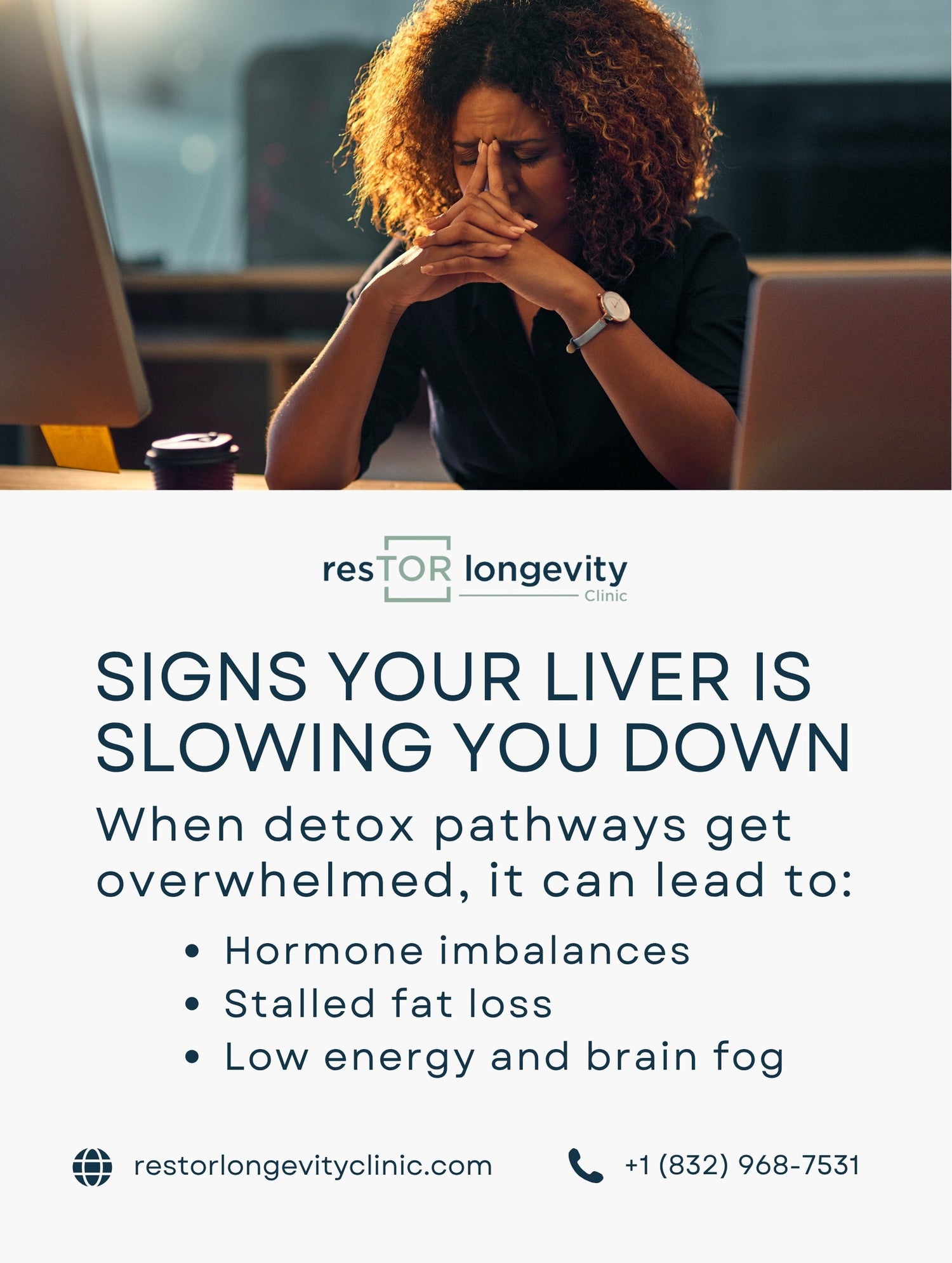Did you know that feeling sluggish, foggy, or stuck in a weight loss plateau may indicate liver dysfunction? These symptoms can sometimes be overlooked, but addressing the health of your liver is crucial for overall wellness and energy levels. In this guide, we will explore how your liver could be the missing link in your health journey, delve into common signs of liver troubles, and present ways to support its vital role in detoxification. We aim to equip you with the knowledge needed to take back control of your health and well-being. By understanding how to recognize the signs of a struggling liver, you can make informed decisions to reclaim your vitality and focus on nourishing your body effectively. So, let's dive in and uncover the alarms your body might be sounding!
Understanding the Role of Your Liver
The liver is one of the most vital organs in our body, with an array of functions that contribute to maintaining optimal health. It processes nutrients from the food you eat, helps detoxify harmful substances, and produces bile to aid digestion. Additionally, the liver plays a role in hormone regulation, energy metabolism, and blood sugar control, making it central to several bodily functions. When the liver isn't performing optimally, it can lead to a cascade of health issues, including hormone imbalances and sluggish digestion.
Common Signs Your Liver Might Be Struggling
Below, we will explore the signs that may indicate that your liver is not functioning at its best:
1. Chronic Fatigue
One of the earliest signs that your liver may be overwhelmed is persistent fatigue. The liver's inability to properly detoxify the body can lead to a buildup of waste products, causing tiredness and lethargy. If you find you are constantly exhausted, it might be time to consider the health of your liver.
2. Weight Loss Plateaus
If you've been working hard to shed pounds but aren't seeing progress, your liver might be at fault. A sluggish liver can disrupt metabolic processes and hinder your ability to lose weight efficiently. When your liver is overwhelmed with toxins, fat loss can stall.
3. Digestive Issues
As the organ responsible for processing nutrients, when the liver struggles, so does your digestion. Symptoms may include bloating, constipation, or poor nutrient absorption. If you frequently suffer from digestive discomfort, it could signal a need for liver support.
4. Hormonal Imbalances
The liver plays a crucial role in hormone regulation. When it is not functioning optimally, it can disrupt hormone levels leading to conditions such as PMS, irregular menstruation, or mood swings. Evaluating liver health may help you address these hormonal imbalances.
5. Brain Fog or Mental Fatigue
Cognitive dysfunction, often referred to as brain fog, can also be an indicator of liver stagnation. The liver helps clear toxins from the blood, and an overloaded liver can lead to an accumulation of harmful substances that affect your mental clarity and focus.
Why Is Liver Detoxification Important?
Liver detoxification is essential for maintaining overall health. When the liver is functioning well, it efficiently filters toxins from the body, producing essential proteins for blood clotting and other functions. Detoxification helps keep your body running smoothly, promoting energy and vitality while reducing the risk of chronic diseases. Supporting your liver's detox pathways is vital for maintaining a high quality of life.
How to Support Your Liver's Health
Here are several actionable strategies you can implement to improve and support liver function:
1. Nutrition Matters
Eating a balanced diet rich in whole foods can significantly support liver health. Incorporate nutrient-dense foods such as fresh vegetables, fruits, whole grains, healthy fats, and lean proteins. Specific foods known to boost liver health include:
- Leafy greens like kale and spinach
- Cruciferous vegetables like broccoli and Brussels sprouts
- Garlic and onions that contain sulfur to help detoxification
- Turmeric, which has anti-inflammatory properties
- Avocados, rich in healthy fats and antioxidants
2. Stay Hydrated
Hydration is crucial for liver function. Drinking enough water throughout the day helps support the liver's detoxification processes and ensures that waste products are efficiently eliminated. Aim for at least 8-10 cups of water per day, and increase your intake if you're active or live in a hot climate.
3. Incorporate Liver-Supporting Supplements
Certain supplements can provide additional liver support, including:
- Glutathione: Known as the body's master antioxidant, glutathione protects the liver from oxidative damage and supports detoxification processes.
- NAC (N-acetylcysteine): This amino acid helps replenish glutathione levels in the body, providing support for liver detoxification and cell protection.
- Milk Thistle: Often used in traditional medicine, milk thistle is known to protect liver cells and promote new cells' growth, enhancing liver function.
4. Limit Alcohol Consumption
Excessive alcohol consumption can significantly strain the liver. If you want to support liver health, reducing or eliminating alcohol from your diet can help alleviate toxin buildup and protect liver cells.
5. Regular Exercise
Regular physical activity aids in hormone regulation, enhances your metabolic rate, and supports overall liver health. Aim for at least 150 minutes of moderate exercise or 75 minutes of vigorous exercise weekly.
6. Manage Stress
Chronic stress can negatively impact internal bodily processes, including liver function. Practice stress management techniques such as yoga, meditation, or deep breathing exercises to promote relaxation and support liver health.
The Bottom Line
Your liver plays a pivotal role in maintaining your energy levels, metabolism, and overall health. By being aware of the signs your liver may be slowing you down, you can take crucial steps toward maintaining its optimum function. Implementing dietary, lifestyle, and supplement strategies can promote liver health and combat sluggishness, allowing you to regain your vitality.
So, what changes can you make at home to boost your liver's performance? Start by assessing your current lifestyle and making one or two changes at a time. Remember, supporting your liver can lead to improved energy, better digestion, and a healthier you. If you're ready to take the plunge for better health, book a consultation today to explore further how we can help you achieve optimal wellness.



